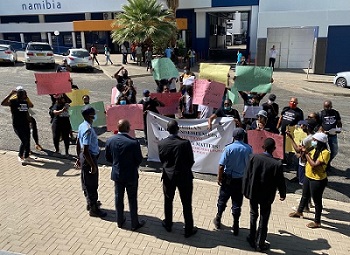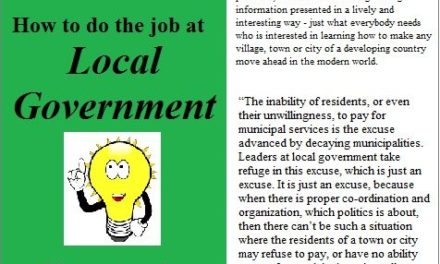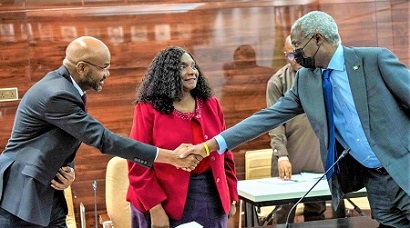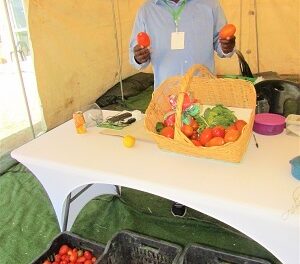The Development Bank of Namibia (DBN) has responded to the Black Business Leadership Network of Namibia (BBLN)’s petition by stating that it has been and remains responsive to economic challenges faced by entrepreneurs in the country in line with its legal mandate and strategic business objectives.
The response comes three weeks after members of BBLN staged a protest in Windhoek and in a petition called on banking institutions, including DBN, to change the bad attitude they have towards black businesses, especially as a consequence of difficulties faced by businesses during the period of Covid-19.
In refuting the allegations levelled against it by BBLN, DBN says that it proactively responded to the impact of Covid-19 on the economy, and has implemented measures to alleviate the burden of loan repayments, which include:
- Covid-19 Business Relief loans to qualifying enterprises
- Loan restructuring for affected clients
- Loan repayment holidays in the tourism and hospitality sector, which have now been extended through June 2022
- Loan repayment holidays to all SME borrowers at the advent of the first lockdown, from March 2020 to September 2020.
- Extended loan repayment holidays to SMEs on the merit of each business case.
“It’s imperative to note that DBN has not called up any loan for any business enterprise that was in good standing before the arrival of Covid-19,” says DBN’s CEO Martin Inkumbi.
Inkumbi adds that the Bank will continue negotiating suitable loan repayment arrangements for borrowers affected by depressed business revenue as a result of Covid-19.
Inkumbi further states that, as a matter of operational policy, the Bank negotiates realistic loan repayment arrangements that suit both the Bank and the borrower.
“This policy is extended to all borrowers who experience business challenges and is not limited to those affected by Covid-19. The policy, in existence since early in the Bank’s operational history, is designed to preserve the development impact of loans.”
However, the Bank reiterates its legal obligation, as an accountable lender of public funds, to recover all money lent out, plus interest charged.
“Affected members of BBLN are urged to approach DBN on a case-by-case basis to negotiate possible relief measures,” says Inkumbi.
“BBLN should not allow itself to be used by borrowers who see it as an opportunity to avoid loan repayment responsibilities. The Bank is seeing some businesses that defaulted years before the term Covid-19 was known and collection efforts were already underway. These businesses are now claiming Covid-19 as the problem.
“BBLN should ideally also advocate good business management practices, and accountability on the part of entrepreneurs, and not demand a blanket cessation of loan collection efforts by lenders. Such demands introduce a new risk factor that lenders now have to consider and discount when lending money.”
Inkumbi further comments that adverse macro-economic developments and external shocks to the business environment are bound to occur from time to time, requiring flexibility and agility on the part of lenders and borrowers alike.
“DBN commits to be responsive to such developments. Where there is a clear recovery or turnaround plan, DBN will and has always come to the table.
“However, when a business concept has failed, even taking Covid-19 out of the equation, the best response by the entrepreneur is either to change the business concept, or if that is not possible, to close it and invest the capital elsewhere. That is also flexibility and agility.”
Inkumbi maintains that DBN is a responsible corporate citizen who draws no joy nor comfort in the closure of enterprises in the economy as the Bank is preoccupied with interventions which impact the economy positively.
In the photo: The Black Business Leadership Network of Namibia (BBLN) handing over an official letter of demand during a public petition to the CEO of DBN, Martin Inkumbi, on 31 January 2022.






